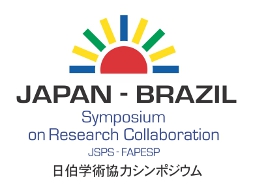FAPESP and JSPS organize Japan-Brazil Symposium
The March 15-16, 2013 conference promotes international research collaboration between scientists in the state of São Paulo and in Japan through discussions on research in strategic areas
A symposium jointly organized by the São Paulo Research Foundation (FAPESP) and the Japan Society for the Promotion of Science (JSPS) will be held at Rikkyo University in Tokyo, March 15-16, 2013. Scientists from Japan and Brazil will come together to discuss scientific advances the two countries have made in the areas of Culture and Society, Economics and Development, Biodiversity and Environmental Conservation, and Medicine and Pharmacology. The event is supported by the Embassy of Brazil in Tokyo.
Held within the context of FAPESP’s 50th anniversary celebration, the schedule for the Japan-Brazil Symposium on Research Collaboration includes talks by researchers from educational and research institutions from the state of São Paulo and Japan. The objective is to promote the cooperation of scientists from the two countries on future research projects.
FAPESP president Celso Lafer points out that the Foundation has presented scientific conferences in several countries together with universities and local scientific institutions as part of its strategy to increase collaboration between researchers from São Paulo and the rest of the world. He goes on to say that, “Japan is one of the countries that FAPESP sees as a priority due to the proven excellence of its scientific institutions and the significant impact its researchers have had on scientific and technological production.”
All sessions at the Japan-Brazil Symposium will address research topics of interest to both countries. On March 15, researchers will discuss immigration in the Amazon region, the Japanese cultural representation in Brazil, the requirements for agribusiness development and sustainability, the monitoring and conservation of biodiversity, agro-forestry systems for sustainable rural development in Brazil, and research on biofuel production, among other topics.
On March 16, the program will present researchers’ findings on obesity, Chagas disease, the diagnosis of viral diseases, and the development of vaccines against malaria and factors associated with its emergence.
Exhibit on biodiversity
One of the activities slated for the Japan-Brazil Symposium will be the March 14 opening of the ‘Brazilian Nature’ exhibit in the Espaço Cultural at the Embassy of Brazil in Tokyo. Result of a partnership between FAPESP and the Berlin Botanical Museum, the exhibit displays the documentation of German botanist Carl Friedrich Philipp von Martius (1794-1868) in his work Flora brasiliensis, which, 172 years after its first publication, still stands as the most complete survey of Brazilian flora ever made.
The botanist’s work also led to the project ‘Flora Brasiliensis On-line and Revisted’ that includes an updated nomenclature of von Martius’ original work along with recent information and illustrations of species described after the initial publication. The exhibit also presents a comparison of the 19th century drawings and current photographs of plants and biomes, and depicts some of the findings of research performed under the scope of the project ‘Phanerogamic Flora of the state of São Paulo’ and the BIOTA-FAPESP program on biodiversity, which for 13 years has conducted research for the description, conservation, recovery and sustainable use of the biodiversity.
Conceived on the basis of data obtained through these three projects sponsored by FAPESP, the exhibit features 37 panels with reproductions of prints and illustrations along with explanatory text. The sample that will travel to Tokyo has already been viewed in Madrid and Salamanca (Spain), Berlin, Bremen, Leipzig, Heidelberg and Eichstätt (Germany), Toronto (Canada), and Washington, DC, Columbus, Cambridge and Morgantown (United States).
Digital scans of the exhibit may be viewed with subtitles in Portuguese, English, German and Spanish at: www.fapesp.br/publicacoes/braziliannature.
About FAPESP
Established in 1962, the São Paulo Research Foundation (FAPESP) is one of the most important science and technology research-sponsoring agencies in Brazil. Maintained by a 1% tax revenue allocation from the state of São Paulo, the Foundation works directly with the São Paulo scientific community in financing proposals in all fields of knowledge, funding research proposals selected on the basis of peer review, a method that utilizes the opinions of Brazilian and foreign researchers as a basis for project financing decisions.
In 2012, FAPESP outlays for research projects totaled $524.4 million. Approximately one third of the Foundation’s annual disbursement targets the training of researchers through grant fellowships. Over 50% of its funds are used in academic research, with 10% invested in research projects for application in small businesses or in university and business partnerships, as well as in subsidizing the formulation of public policies.
Throughout its 50 years, FAPESP has awarded approximately 105,000 research grants – from undergraduate to post-doctorate – and over 96,000 awards to researchers in the state of São Paulo. Support is given to all areas of science as well as technology, engineering , the arts and the humanities. FAPESP also supports research projects in areas considered strategic for Brazil, through broad thematic programs such as biodiversity, climate change and bioenergy. To learn more, go to: www.fapesp.br.
Japan-Brazil Symposium on Research Collaboration
Date: March 15-16, 2013
Venue: Rikkyo University, Tokyo, Japan
Registration: https://reg34.smp.ne.jp/regist/is?SMPFORM=minf-nctjt-0ed5719444a8454ba740105f5d69b7f4
FAPESP Communications Management Office / Press Office
Fernando Cunha – cunha@fapesp.br – 11.3838-4151
Samuel Antenor – samuel@fapesp.br – 11.3838-4381







